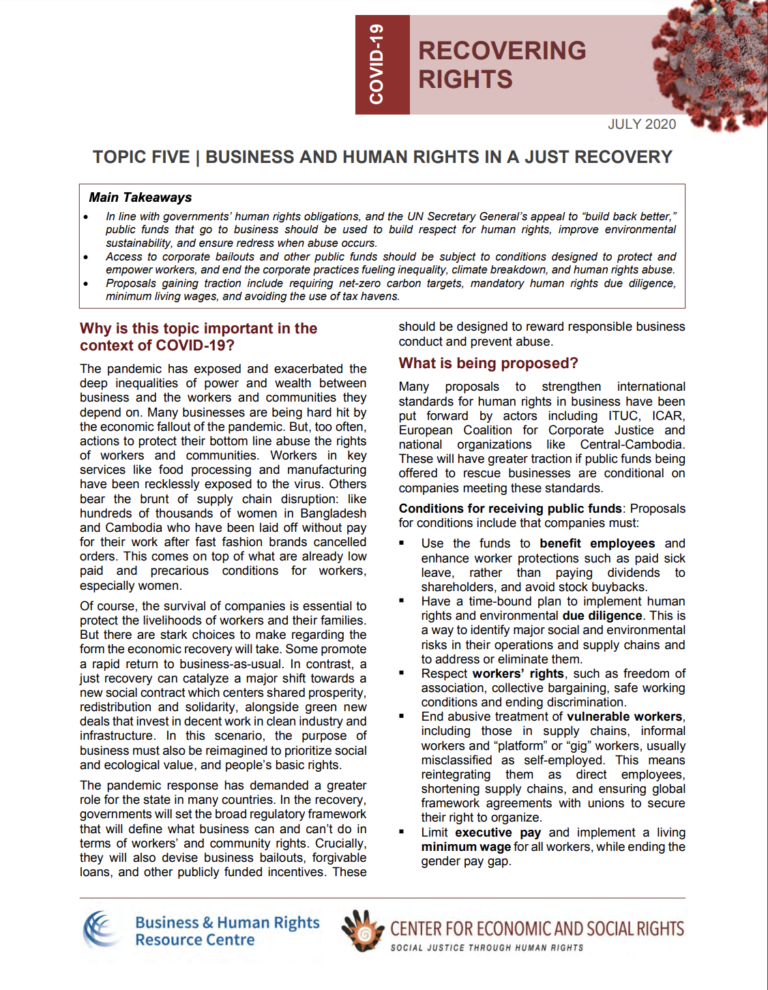This brief is part of a series highlighting how we can leverage the commitments governments have made to guarantee human rights to steer us towards a just recovery from the COVID-19 pandemic.
The pandemic response has demanded a greater role for the state in many countries. In the recovery, governments will set the broad regulatory framework that will define what business can and can’t do in terms of workers’ and community rights. Crucially, they will also devise business bailouts, forgivable loans, and other publicly funded incentives. These should be designed to reward responsible business conduct and prevent abuse.
This brief focuses on the protection and strengthening of international standards for human rights in businesses in the process of recovery of those businesses seriously affected by the Covid-19 pandemic. The brief suggests a series of conditions companies should meet in order to receive public funds, as well as a range of accompanying measures that can enhance the transformative potential of bailout conditions.

